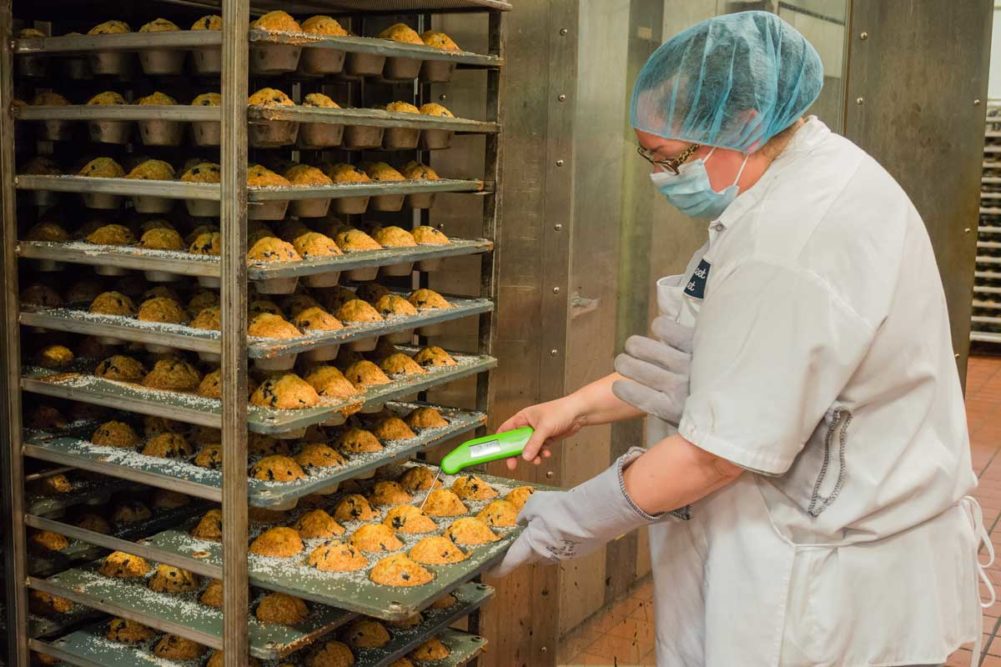|
|
There are custom manufacturers, and then there is Main Street Gourmet. Over its 30-plus year history, the Akron, Ohio-based company has evolved into an innovative business complete with adaptive operations to fulfill its promise of customization.
“Everyone talks innovation; we created a company that is pure innovation,” said Harvey Nelson, co-founder and chief executive officer. “We’re constantly adapting and changing and trying to figure out the best way to do things because we have to. Surviving and constantly growing is easier for us because we can adapt. We are the Charles Darwin of bakeries.”
From its company-wide collaborative team to its ever-changing plant floor, Main Street Gourmet has positioned itself as a one-stop shop of bakery solutions for national restaurant chains and in-store bakeries. The company’s operations and collaborative approach enable it to quickly deliver custom solutions across a wide variety of applications and challenges.
“We really built our whole company around being able to solve problems,” Mr. Nelson said. “And if we can solve one problem, we can solve others.”
Main Street Gourmet is always evolving to help its customers stand out among the competition. It’s sur-vival of the fittest in foodservice category these days, and the Darwinian bakery has gone through its own evolution to help those customers reinvent themselves.
[Related listening: The novel approach behind Main Street Gourmet’s employee recruitment strategy]
Main Street Muffins opened its doors in 1987 as a retail muffin shop. Mr. Nelson and Co-founder Steve Marks renovated a four-story building in downtown Akron and knew they wanted a retail shop on the first floor. After seeing the growing popularity of muffins on the West Coast in the late ’80s, they decided on a muffin shop despite not having bakery experience.
“Turns out muffins were easy,” Mr. Nelson said.
While construction was underway at the site, Mr. Nelson experimented in his apartment kitchen, learning from a local baker. He would bake a batch of blueberry muffins, solicit feedback from the construction workers, go back and tinker in the kitchen, repeat. Once the blueberry muffins were perfected, he moved on to the next variety and so on until the company had created a menu of muffins to open the shop.
The muffins were not only easy, but they were a hit with the community.
Mr. Nelson and Mr. Marks sold them any way they could, delivering to local businesses and selling them out of a cart on the local university campus and downtown. Six months in, owners of a nearby truck stop purchased the muffin batter so they could bake Main Street’s muffins fresh, and the wholesale market opened up before them.
“We put the muffin batter into buckets, and we thought, ‘Oh my gosh, this was so easy,’ ” Mr. Nelson recalled. “And then, as we started going after that business, we realized to grow a retail or a wholesale business, we were going to have to choose, and we chose to go the wholesale way.”
What followed was a hub-and-spoke model of growth in major cities across the Midwest and along the East Coast. Main Street Muffins was selling its muffins and muffin batter to mostly small, independent retail shops through distributors.
“We would find a distributor in an area — Detroit, Pittsburgh, anywhere nearby — and hire salespeople, give them a good commission, and we grew that muffin business,” Mr. Nelson explained.
[Related reading: Main Street Gourmet prioritizes flexible operations]
In 1996, Mr. Nelson and Mr. Marks saw a new opportunity emerge, a need that wasn’t being met yet. As more and more foodservice chains were consolidating, they needed to differentiate their bakery items to stand out and stay competitive. After working with one customer to create a signature product, Main Street realized this service could become a lucrative business.
“We did something pretty clever with that product, and we realized we’re pretty good at this,” Mr. Nelson explained. “So the vision was to become a custom bakery manufacturer.”
Main Street Muffins would transition into Main Street Gourmet and focus on developing custom products for national chain restaurants and in-store bakeries. The company changed its entire business infrastructure to become more responsive to customer needs. That transition took 10 to 15 years, but now Main Street Gourmet is well-equipped to nimbly develop distinctive products that solve its customers’ problems.
This article is an excerpt from the November 2020 issue of Baking & Snack. To read the entire feature on Main Street Gourmet, click here.






